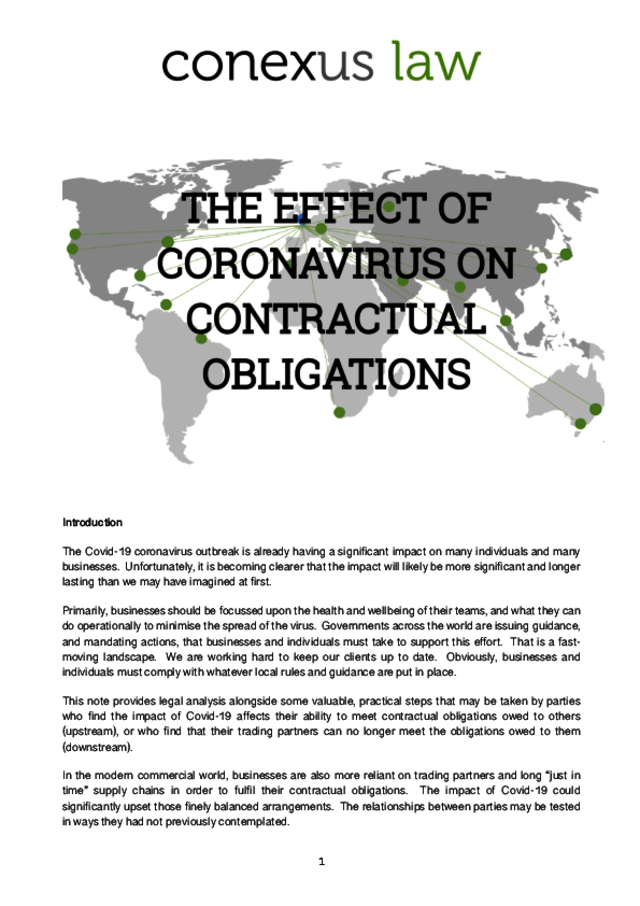GDPR & your privacy.
Your privacy as a member is important to us. Recently, rules surrounding privacy have changed, so we have created this manifest for you to read and accept.
It is not possible for you to be classed as an authentic member of the DCA unless you accept the terms, that includes but is not limited to the GDPR statement below.
Please read the privacy policy here.
Legal Advice from our DCA Legal Partners Conexus Law

 Ed Cooke
Ed Cooke
THE EFFECT OF CORONAVIRUS ON CONTRACTUAL OBLIGATIONS
Introduction
The Covid-19 coronavirus outbreak is already having a significant impact on many individuals and many
businesses. Unfortunately, it is becoming clearer that the impact will likely be more significant and longer
lasting than we may have imagined at first.
Primarily, businesses should be focused upon the health and wellbeing of their teams, and what they can
do operationally to minimise the spread of the virus. Governments across the world are issuing guidance,
and mandating actions, that businesses and individuals must take to support this effort. That is a fast moving landscape.
We are working hard to keep our clients up to date. Obviously, businesses and individuals must comply with whatever local rules and guidance are put in place.
This note provides legal analysis alongside some valuable, practical steps that may be taken by parties
who find the impact of Covid-19 affects their ability to meet contractual obligations owed to others
(upstream), or who find that their trading partners can no longer meet the obligations owed to them
(downstream).
In the modern commercial world, businesses are also more reliant on trading partners and long “just in
time” supply chains in order to fulfil their contractual obligations. The impact of Covid-19 could
significantly upset those finely balanced arrangements. The relationships between parties may be tested
in ways they had not previously contemplated.
As trading relationships are now often global, one may have to consider a complex interplay of laws from
different jurisdictions, some of which are potentially in conflict. The answers are not simple to come by
and are highly fact specific. This note gives some general legal guidance, but it is no substitute for proper
legal advice – whether that advice comes from us, or your usual lawyers.
Download now

+ 44 (0)845 873 4587
[email protected]




